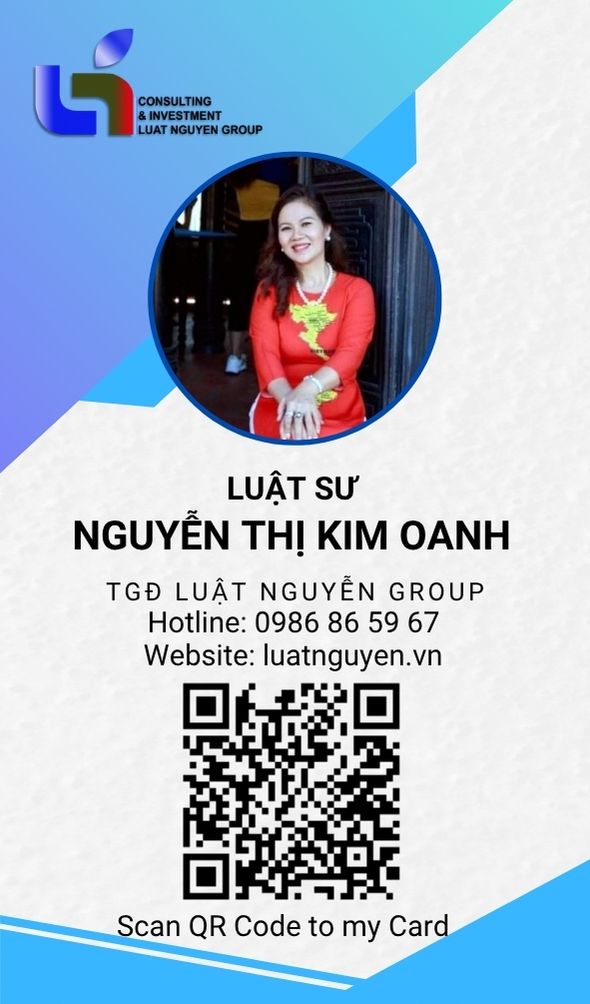Guidelines on Acquiring Vietnamese Citizenship
Conditions for Acquiring Vietnamese Nationality
Under Article 19 of the Law on Nationality 2008 (amended 2025), foreigners and stateless persons must meet six conditions to obtain Vietnamese nationality:
-
Full civil capacity under Vietnamese law (except for minors acquiring nationality through their parents who are Vietnamese citizens).
-
Compliance with the Constitution and laws, respect for Vietnamese culture and traditions.
-
Sufficient Vietnamese language proficiency to integrate into the community.
-
Permanent residence in Vietnam.
-
At least five years of permanent residence in Vietnam before the application.
-
Ability to ensure livelihood in Vietnam.
Decree 191/2025 specifies that Vietnamese proficiency means being able to listen, speak, read, and write appropriately for daily life and work. Livelihood capacity can be proven through assets, legal income, or sponsorship by organizations or individuals in Vietnam.

Applicants not exempt from the residency condition must hold a permanent residence card issued by the Ministry of Public Security. Residency duration is counted from the date of issuance of the card.
Special categories such as individuals with outstanding contributions to Vietnam or those deemed beneficial to the State are only required to meet the first two conditions: civil capacity and legal compliance. These include recipients of state decorations, individuals officially recognized for special contributions, people with exceptional talent in science, technology, arts, sports, education, or entrepreneurs and investors certified by state agencies as long-term contributors to Vietnam’s development.
Retaining Foreign Nationality When Naturalizing in Vietnam
The amended 2025 Law on Nationality introduces a mechanism allowing certain special individuals to hold both Vietnamese and foreign nationalities if approved by the President and subject to two conditions:
-
Retention of foreign nationality must comply with the law of that country.
-
The foreign nationality must not be used to harm Vietnam’s security, order, or lawful interests.
Applicants must submit official documents from foreign authorities confirming the legality of retaining foreign nationality. If such documents are not available because the foreign country does not issue them, applicants may provide a sworn statement affirming that retention is lawful under that country’s legislation. They must also pledge not to misuse the foreign nationality against Vietnam’s interests. Failure to meet these requirements means the applicant must renounce foreign nationality when naturalizing in Vietnam.
Practical Approach
The introduction of a sworn statement requirement is considered practical, as many countries do not issue official confirmation regarding dual nationality. This avoids deadlocks in applications and aligns with international practices, similar to approaches taken by the US and Canada.
Allowing certain individuals to keep their foreign nationality while becoming Vietnamese citizens meets a pressing need, especially among overseas Vietnamese and investors. It facilitates business, education, and international relations, while safeguarding Vietnam’s sovereignty and national security.
Ý kiến bạn đọc
Những tin mới hơn
Những tin cũ hơn
Luật sư Nguyễn Thị Thuý Hằng - Chuyên gia pháp lý từ miền đất Quảng
Luật sư Nguyễn Thị Thúy Hằng: Dấu ấn pháp lý từ miền đất Quảng 🌟 Hành trình vươn lên từ cội nguồn miền Trung Chúng ta thường nghĩ về Luật sư như những người nghiêm nghị, gắn liền với các điều luật khô khan. Nhưng đối với Luật sư Nguyễn Thị Thúy Hằng, cô là hiện thân của sự...
-
 "Bẫy" Nợ Thuế Từ Những Mã Số Thuế Kinh Doanh "Bỏ Quên"
"Bẫy" Nợ Thuế Từ Những Mã Số Thuế Kinh Doanh "Bỏ Quên"
-
 Siết chặt quản lý đo lường, chất lượng xăng dầu theo quy định mới
Siết chặt quản lý đo lường, chất lượng xăng dầu theo quy định mới
-
 Luật Hoạt động giám sát của Quốc hội và Hội đồng nhân dân: Điểm mới
Luật Hoạt động giám sát của Quốc hội và Hội đồng nhân dân: Điểm mới
-
 Không được tự ý gộp Báo cáo tài chính: Lưu ý quan trọng từ Bộ Tài chính
Không được tự ý gộp Báo cáo tài chính: Lưu ý quan trọng từ Bộ Tài chính
-
 Cảnh báo: Doanh nghiệp có thể bị phạt tới 70 triệu đồng nếu xuất hóa đơn quà tặng Tết sai thời điểm
Cảnh báo: Doanh nghiệp có thể bị phạt tới 70 triệu đồng nếu xuất hóa đơn quà tặng Tết sai thời điểm
- Đang truy cập258
- Hôm nay0
- Tháng hiện tại5,717,492
- Tổng lượt truy cập11,516,119
-
 Khởi tố Đoàn Văn Sáng vì tội giết người ở Lạng Sơn
Khởi tố Đoàn Văn Sáng vì tội giết người ở Lạng Sơn
-
 Luật Thuế GTGT 1/1/2026: Bước Ngoặt Cho Hộ Kinh Doanh Và Nông Nghiệp
Luật Thuế GTGT 1/1/2026: Bước Ngoặt Cho Hộ Kinh Doanh Và Nông Nghiệp
-
 Luật Thuế TNCN 2025: Chính Thức Áp Dụng Biểu Thuế 5 Bậc Mới
Luật Thuế TNCN 2025: Chính Thức Áp Dụng Biểu Thuế 5 Bậc Mới
-
 Quy định mới: Tiền lương từ 5 triệu đồng phải chuyển khoản
Quy định mới: Tiền lương từ 5 triệu đồng phải chuyển khoản
-
 Foreigners Seeking a Vietnamese Driver’s License: What You Must Meet
Foreigners Seeking a Vietnamese Driver’s License: What You Must Meet








